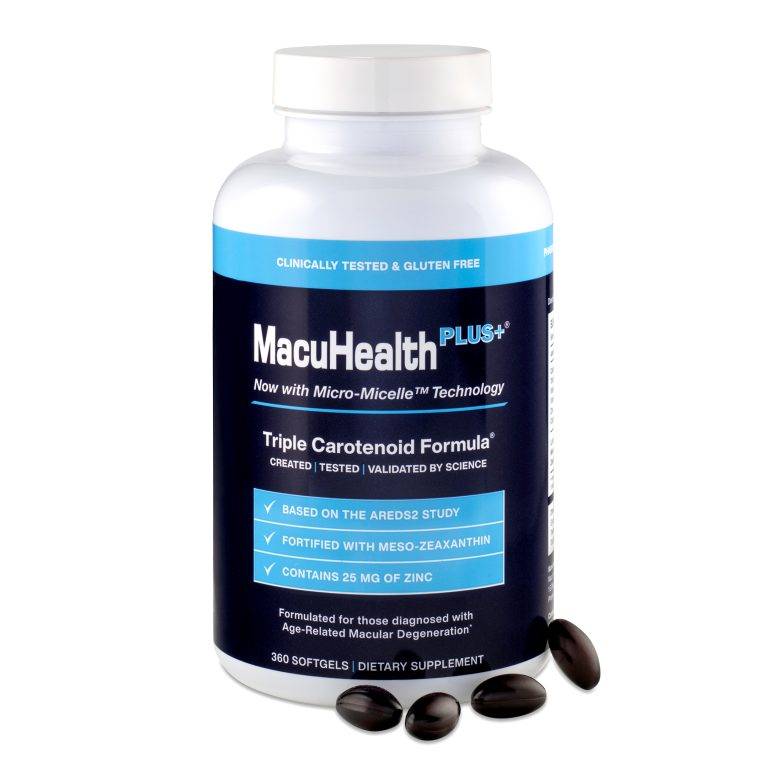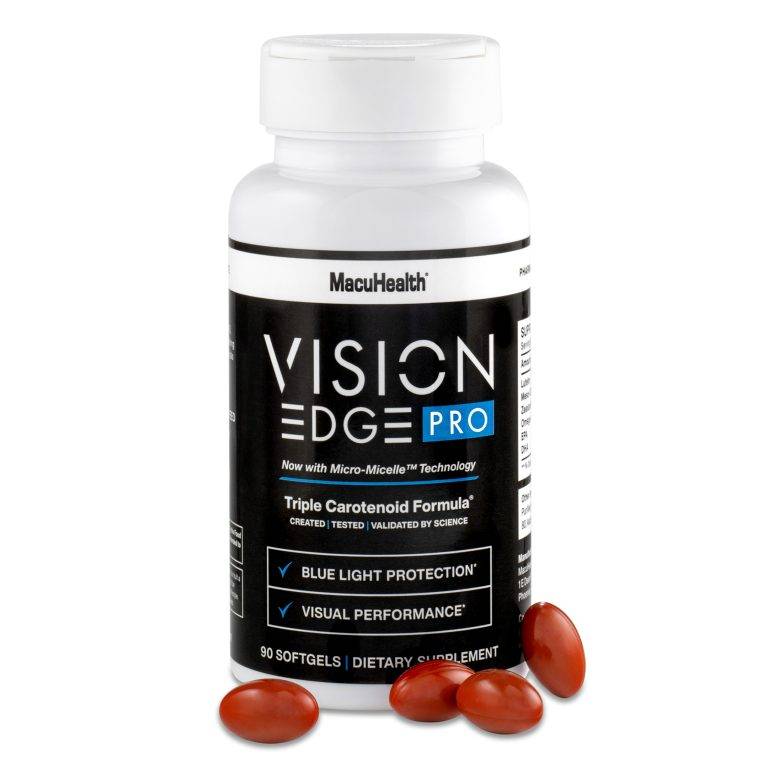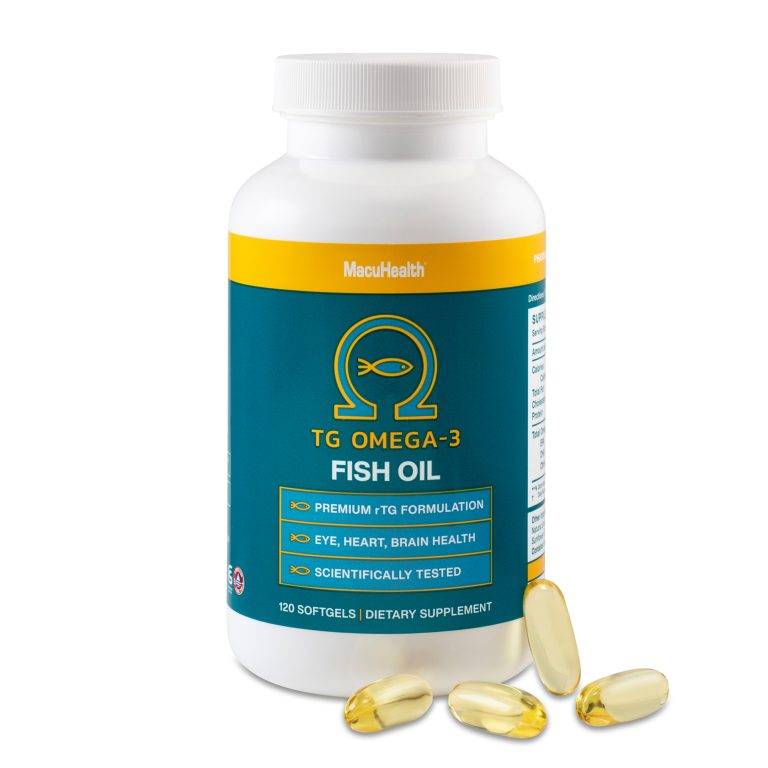SUBSCRIBE AND SAVE! | SIGN ME UP!

Written by MacuHealth
Reviewed by Jim Stringham, Ph.D.
If you want to know how to keep your eyes healthy, it’s important to understand how your eyes and brain work together to interpret the world around us.
You might already know that the optic nerve connects your eyes and your brain, but it’s much more complex than that! Let’s delve into the eye-to-brain connection and examine how supporting your eye health improves your overall well-being.
Every part of your body connects to your brain, but the relationship between the eye and the brain is especially complicated. Your eyes and brain share a structural relationship that lets them process information. Yet the process isn’t done; using the information provided by your eyes and brain helps you maintain balance, understand what you see, decide what to do with that information and more. But how are the eyes connected to the brain?
How the Eyes and Brain Connect Structurally
Your eyes and brain are connected via the optic nerve, a dense bundle of nerve fibers that work like a cable. Each eye has its own thread that reaches back toward the brain.
At a spot called the optic chiasm, fibers from each optic nerve bundle cross over one another. That crossing helps you connect what you see with both eyes, which is essential for depth perception. From there, the signals from your eyes are further processed into color, form, and motion channels that ultimately get combined in the back of the brain – the visual cortex.
How the Eyes and Brain Connect to Process Information
When it comes to your vision, your optic nerve is an information highway. When light enters your eye, it reaches the retina, a layer of light-sensitive tissue that sits at the back of the eye and connects to the optic nerve.
The retina is full of cells called photoreceptors. These cells convert light into electrical signals that are sent down the optic nerve and toward your brain.
Before those signals reach the rest of your brain, they go to a structure in the thalamus called the lateral geniculate nucleus (LGN). The LGN brings data from all your senses, so it’s essential for balance and many other functions. The LGN routes visual information to the appropriate brain areas “higher up” in the visual stream.
In the next step of the eye-brain connection, the electrical signals reach the visual cortex and other brain areas for processing and construction of a complete picture. It’s a lot like how a computer can turn code into a user-friendly website.
The brain also helps you react to what you see. For instance, your brain might process colors, light, shape and size to show you a picture of an oncoming car. It will then tell you to get out of the way before the car hits you.
Now you have a good general idea of how the eye-to-brain connection works. But vision is also connected to cognition.
Specifically, at least one study from the Journal of the American Medical Association found that older people with declining vision are more likely to experience memory loss and other symptoms of cognitive decline.
Younger people have greater neuroplasticity, meaning their brains can more easily adapt to challenges. So, people who develop visual issues earlier in life can adapt to a lack of visual input and don’t tend to experience cognitive decline. It’s an interesting example of the eyes’ connection to the brain and its effects on the body.
Age-related visual decline isn’t the only type of vision loss that can contribute to cognitive issues, though other health conditions can impact your cognition and vision.
Blood vessels that connect to your brain and eyes can be negatively impacted by diabetes and high blood pressure. Eventually, that impact can lead to vision loss and cognitive decline.
If the blood supply to your eyes is insufficient, your eyes won’t receive the nutrients they need to function correctly. Due to the strong brain-eye connection, parts of your retina and brain may die if your blood supply is limited. That leads to degeneration of vision and ensuing cognitive decline.
Similarly, arterial damage will disrupt the delivery of nutrient-rich blood to your eyes and brain, leading to a decline in vision and cognition.
According to studies in the Journal of Neuroscience Nursing, inflammation has been linked to cognitive decline. However, it also may cause vision loss. Chronic inflammation can cause nerves to degenerate and impair the building of new nerves.
Since the optic nerve is a vital part of the eyes and brain connection, inflammation can damage your vision while also causing cognitive issues.
Oxidative stress can severely impact your eyes and brain with damage from free radicals. These unstable atoms can damage your cells and cause a variety of illnesses. This condition often leads to inflammation that causes cognitive and visual issues.
The strong eye connection to brain means that caring for your eyes is critical for overall health. A complete eye care routine includes healthy habits that protect and support your eyes daily. Eating a healthy diet rich in beta-carotene, wearing sunglasses to protect your eyes from UV rays, taking frequent breaks from screens, and getting annual eye exams will help keep your eyes in good shape.
You may already know that antioxidants are good for you. These compounds fight free radicals to reduce your risk of cellular damage and various types of disease. Recent research from the National Center for Biotechnology Information has also indicated that consuming foods and supplements rich in antioxidants can reduce your risk of macular degeneration and other eye issues.
All antioxidants have health benefits, but some are more helpful for eye health. Here are some of them, along with natural sources:
Antioxidant-rich supplements can maximize your eye health and reduce your risk of eye diseases and similar issues. Correct supplementation with high-quality eye vision supplements like MacuHealth can give your eyes the nutrients they need.

Formulated by scientists and clinically proven to support eye health for both healthy and diseased eyes.

Based on the AREDS2 formula with 10 mg of Meso-Zeaxanthin and reduced levels of zinc for the ultimate defense against AMD.

Created for those wanting to protect against blue light and improve visual performance for everyday maintenance.

Sourced from small, open-water catch fish from the coast of Chile, TG Omega-3 provides customized dosing for patient specific needs.